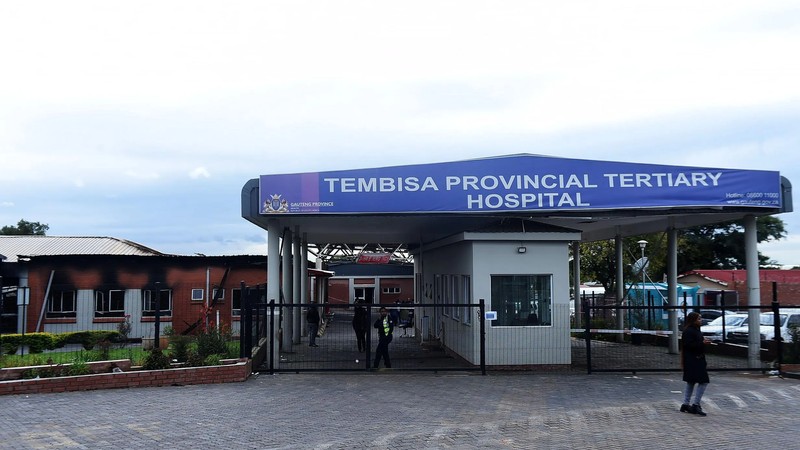Occupational therapist Dr Fatima Hendricks blames a decline in moral integrity, fueled by greed and financial influence, for the dire situation at Tembisa Hospital. She described this a “moral abomination” that compromises personal ethics and devastates patients and communities.
Speaking at the University of KwaZulu-Natal’s (UKZN) Westville Campus, Hendricks recounted her experiences of being held captive by Israel after Israeli Occupation Forces intercepted the Global Sumud Flotilla.
She spoke about lessons learnt from the Global Sumud Flotilla and interacted with UKZN’s occupational therapy academics, third-year students and the media.
Hendricks emphasised the importance of understanding South African politics, especially concerning land expropriation, gentrification, and political power distribution.
She said these are parts of bigger conversations that are important as the country prepares to hold local government elections next year.
“As healthcare professionals, we need to be in those spaces of political engagement, or we will be on the sidelines and healthcare decisions will be made for us. We need to be in leadership so that things like Tembisa don’t happen,” Hendricks said.
“We need to open up and be ambitious in our mobilisation, ambitious in our careers, so that we get into leadership positions that are not just academic, but out in the public health care sector and public sector at broad, so that we can offer the type of leadership that we see is lacking.”

Last month, the Special Investigating Unit (SIU) released an interim report on the Tembisa Hospital investigation, which uncovered at least three syndicates responsible for the looting of over R2 billion.
Procurement fraud and serious maladministration were uncovered in an analysis of 2,207 procurement bundles.
Key officials from the Gauteng Department of Health (GDOH) and Tembisa Hospital are implicated, facing accusations of receiving corrupt payments. These payments allegedly facilitated the irregular appointment of service providers, involving money laundering and fraud through fronting and the use of false Supply Chain Management documentation.
The investigation currently involves 207 service providers which traded with the Tembisa Hospital under 4,501 purchase orders (PO). Each PO is reportedly linked to a three-quote procurement process involving three competing bidders. The total value of the matters under investigation by the SIU, as per the Proclamation, amounts to more than R2 billion.
Corrupt payments amounting to more than R122 million were linked to officials and employees of the GDOH and Tembisa Hospital.
Hendricks said she thinks that what happened at Tembisa Hospital reflects a wider systemic decline in our moral integrity.
“When we allow greed, ambitions of greed and allow ourselves to be susceptible to financial influences, it really leads to a situation of not just us oppressing ourselves in terms of ceding to this immorality, but has a great impact on the patients and the communities and that in itself is such a moral abomination,” Hendricks said.
“So, not only are these individuals oppressing themselves with their own immorality and the way that they are actually choosing to behave, but they are also causing incredible damage to the entire health care system because as one hospital falls, another falls and another under the same weight of corruption.”
